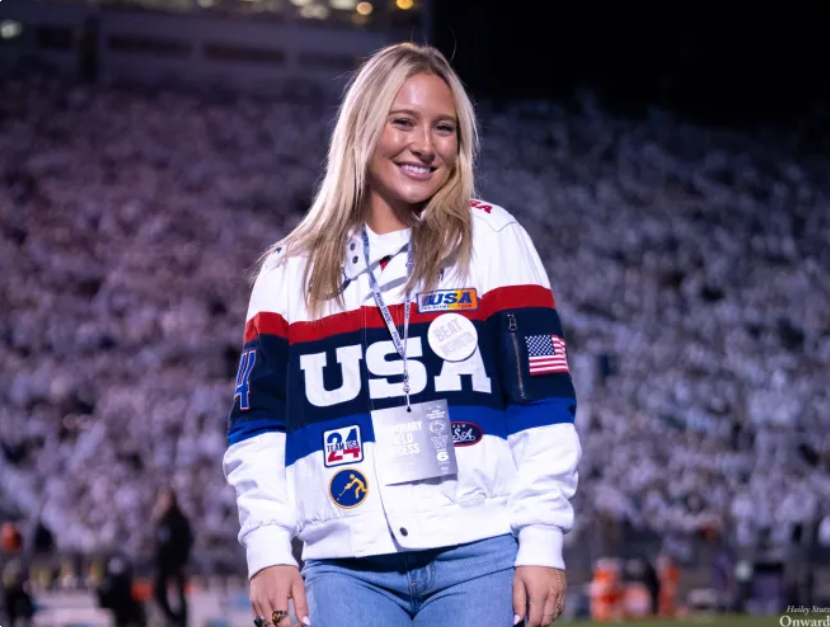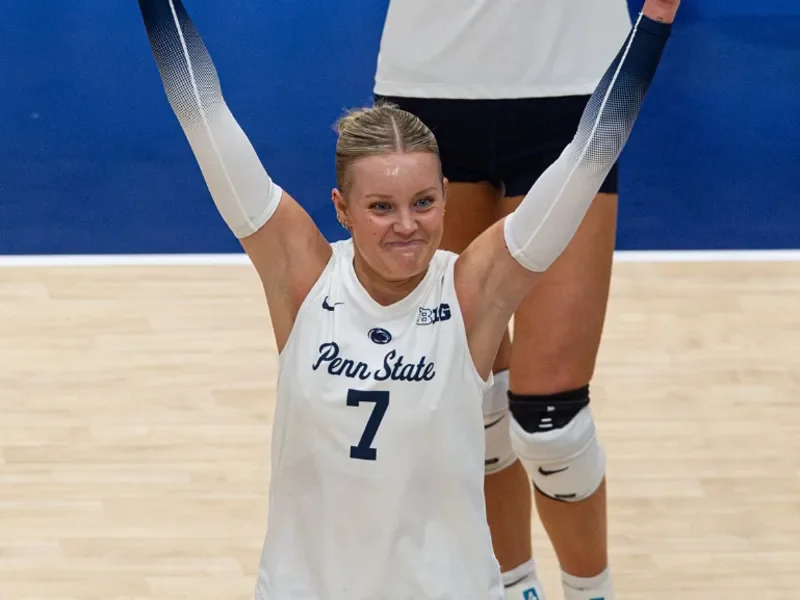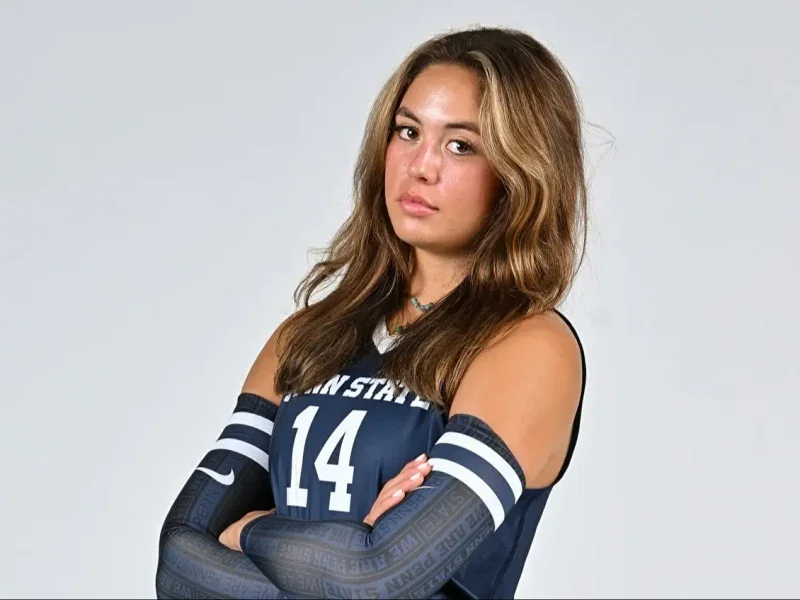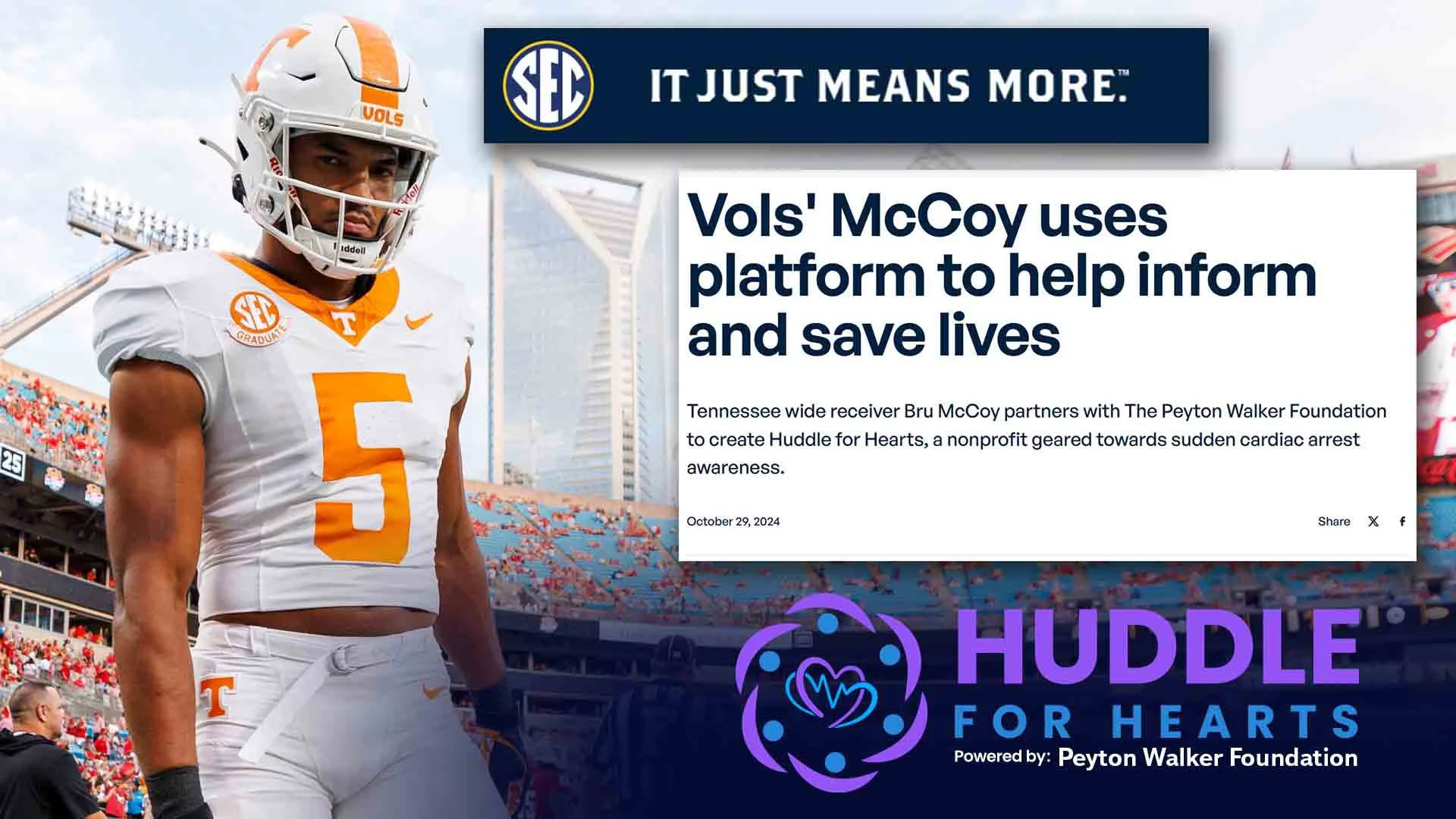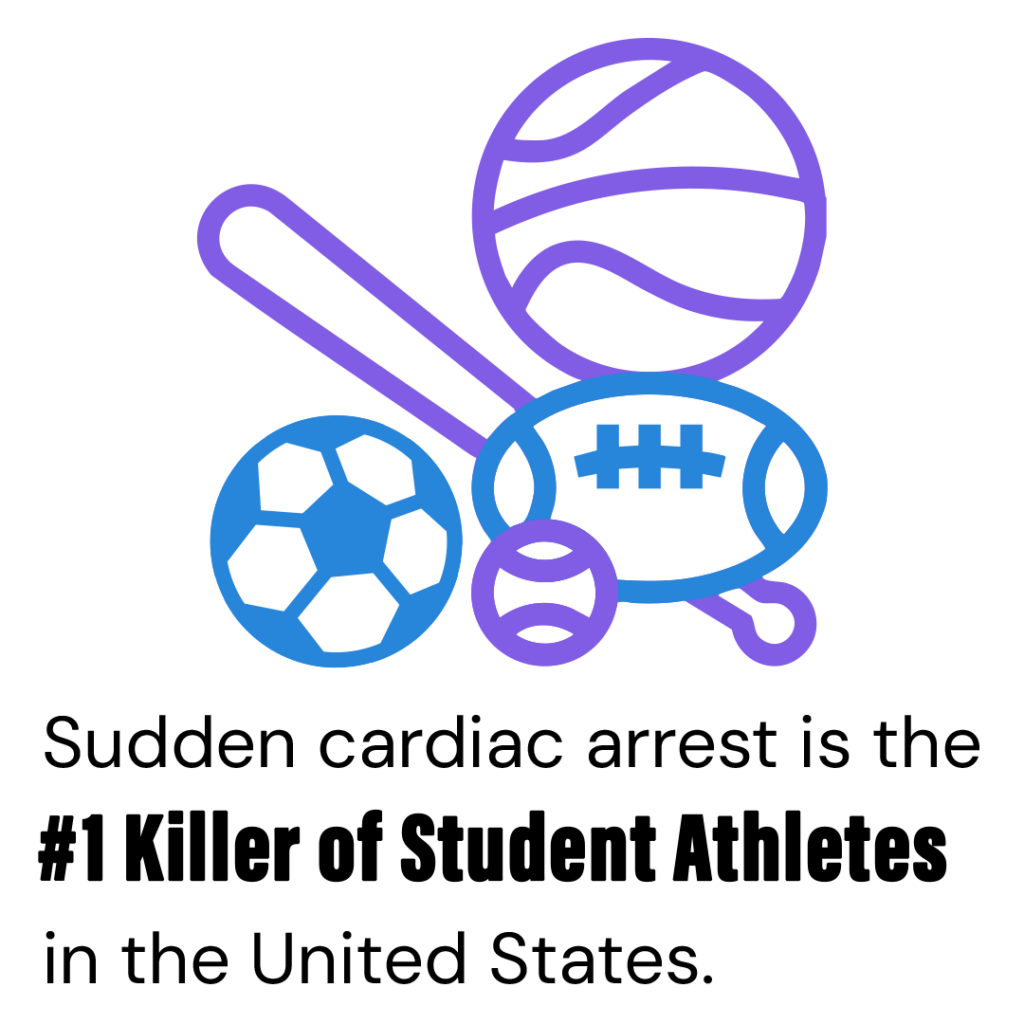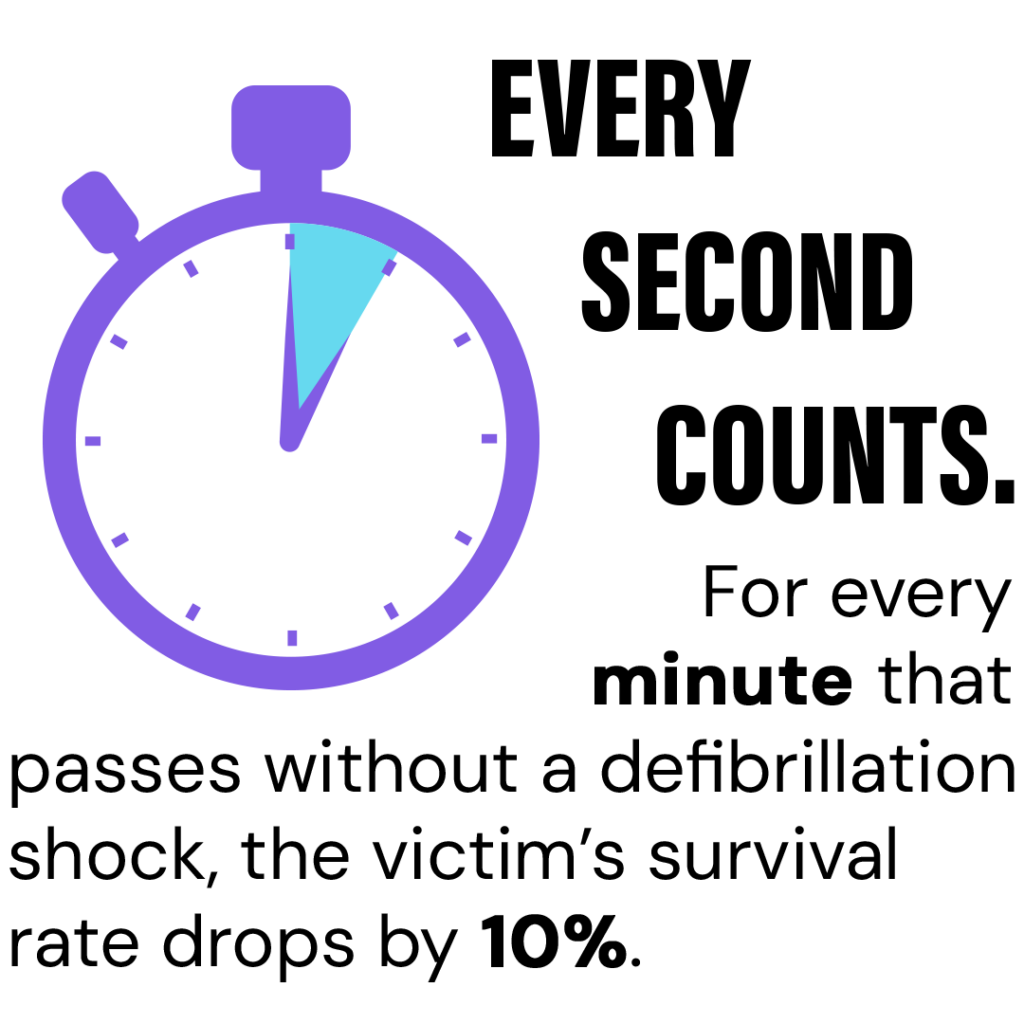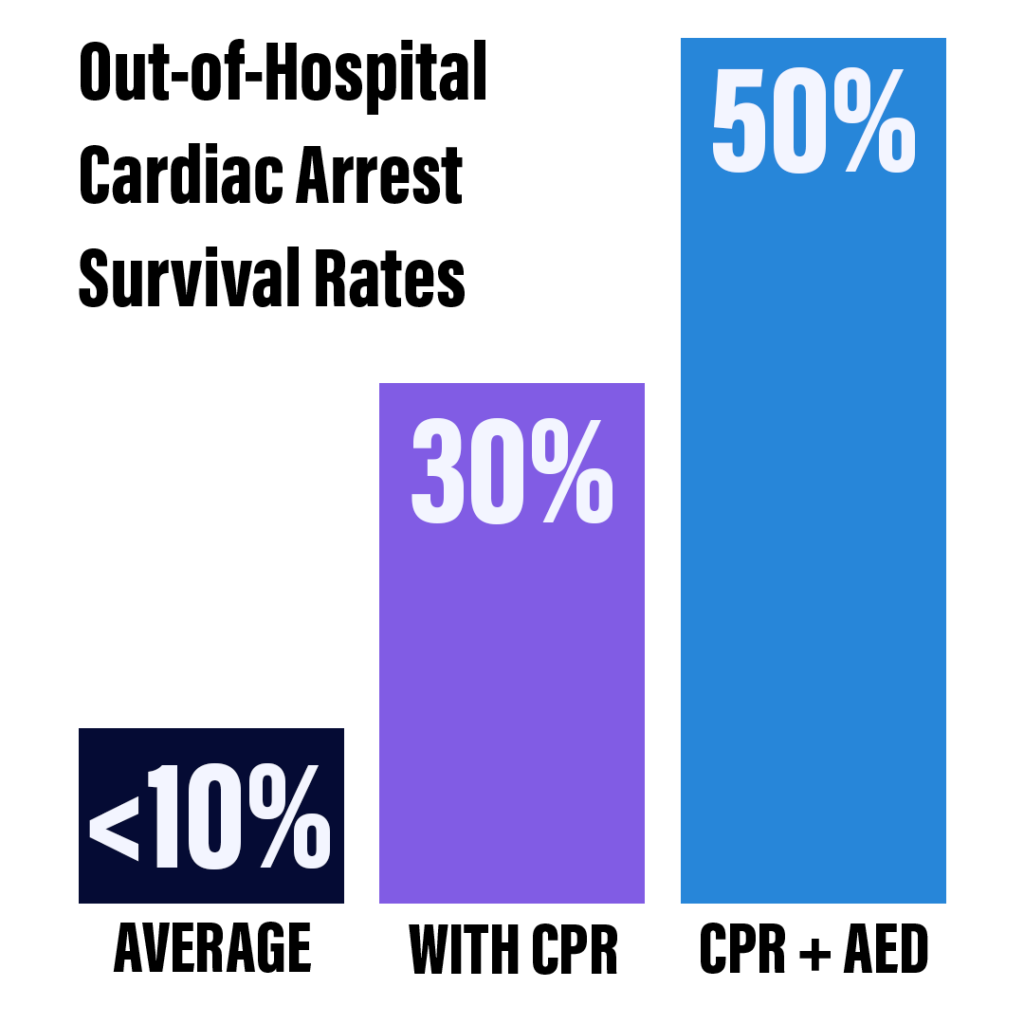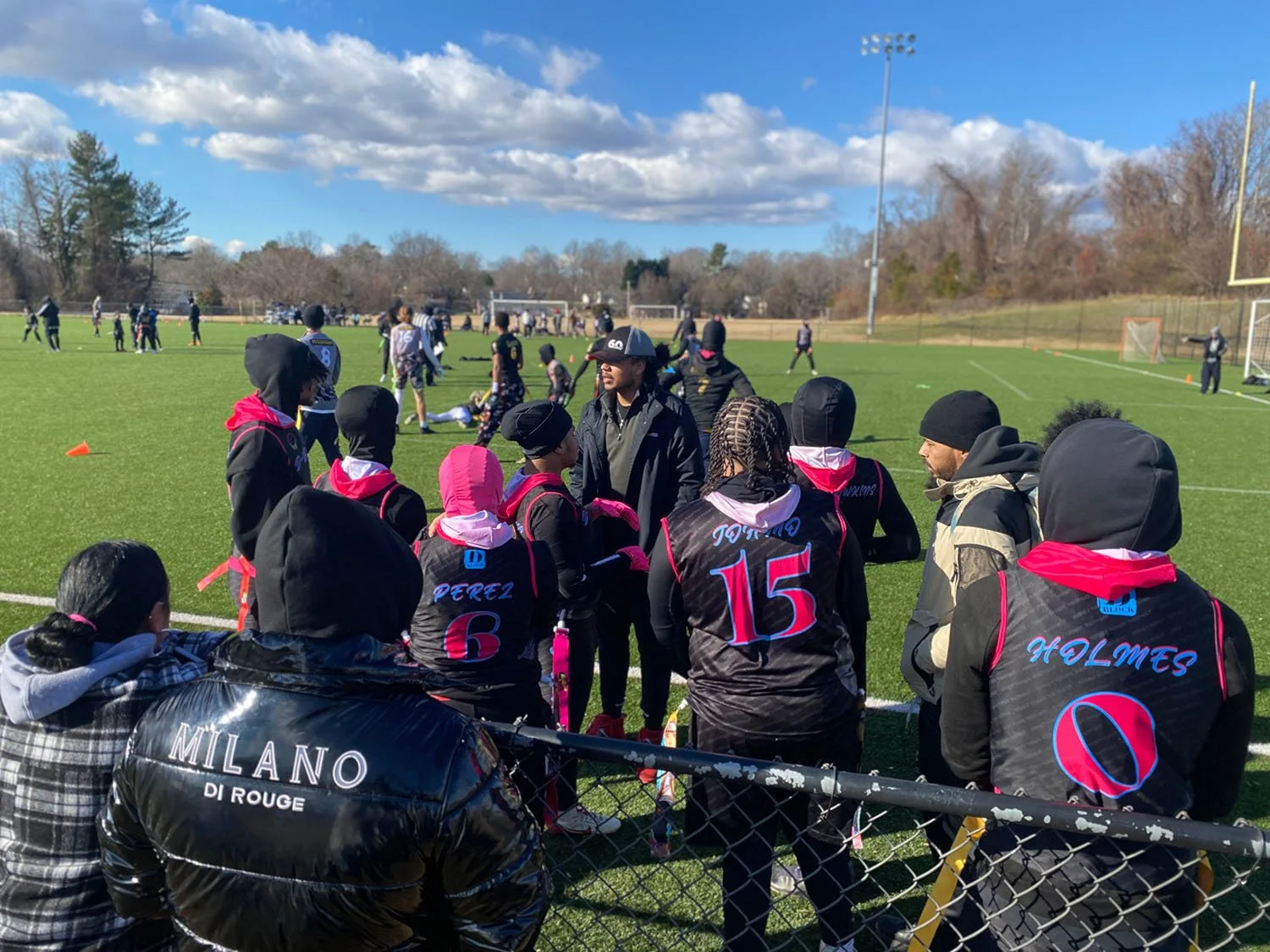Empowering Athletes, Protecting Hearts, Saving Lives
Huddle For Hearts® is a national life-saving initiative powered by The Peyton Walker Foundation. We partner with collegiate/high school athletes and students who are dedicated to our mission of increasing awareness and survival rates of Sudden Cardiac Arrest to grow our impact across the US.
Through our Huddle For Hearts® program, AEDs and CPR training are donated to youth sports and youth service organizations, especially in underserved communities, where kids play, practice, and gather. Early defibrillation with an AED can mean the difference between life and death.
Athletes are encouraged to become Heart Heroes by helping fundraise, securing performance-based sponsorships, and supporting AED placement and CPR training for coaches, players, and parents. We also provide guidance to create emergency response plans that save lives. For more information, contact Julie Walker.
Our Supporting Teams & Athletes
Phia Gladieux
Field Hockey
USA
Addie Lyon
Volleyball
Penn State
Caroline Jurevicius
Volleyball
Penn State
Messiah Mickens
Football
Harrisburg High School
Sudden Cardiac Arrest in Sports
Learn what Sudden Cardiac Arrest looks like so you can react in the event of an emergency.






